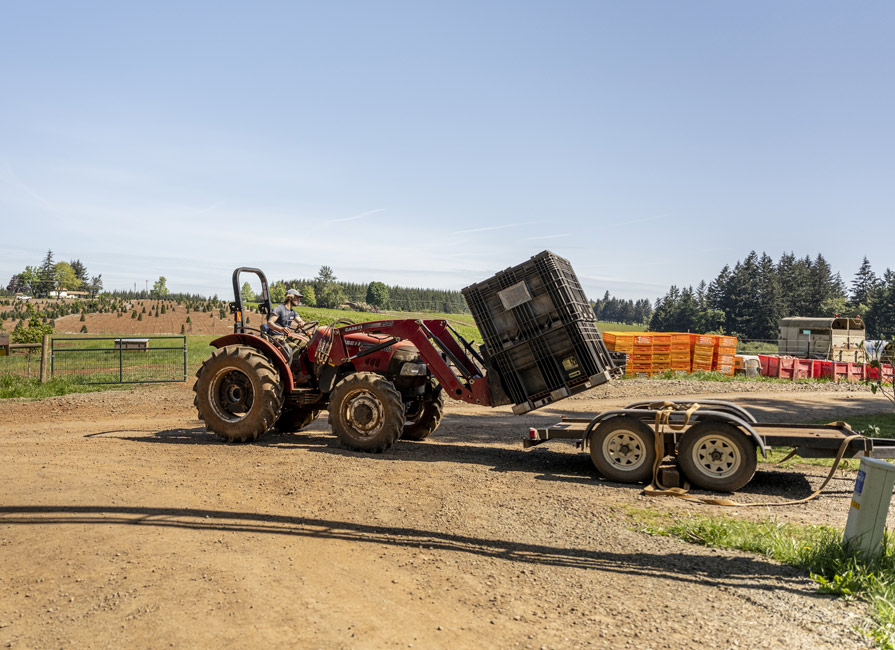One of the key attractions of our Certified Regenerative by AGW program is its practical…

Think a Diet Without Animal Protein Will Save the World? Six answers that might make you think…
There’s been a lot of talk lately about the environmental and animal welfare impacts of animal agriculture. First we were told to avoid processed meat; then we learned beef was the new villain; and now ALL meat is being vilified as bad for human health, animal welfare and the planet.
But is meat’s bad rap really deserved? While it’s great to see more people talking about the impact of our diets on the planet and animal welfare, encouraging the world to go meat-free misses the point entirely. Here’s why:
- Not all meat is created equal. Recent reports calling out beef for its climate impacts are based on conventional, industrial beef models that are vastly more consumptive and resource-intensive due to their reliance on grain and confinement feeding. In contrast, pasture-based and grassfed beef production uses pasture, rain and sunshine to make high-quality food, and can even help to mitigate climate change through carbon sequestration.
- Not all vegetables are created sustainably. Some environmentalists and animal advocates criticize livestock farmers by presenting plant-based meat alternatives as inherently more sustainable. In fact, the truth is much more complex and doesn’t fit easily into single-lens thinking: Environmentally speaking, beef cattle raised on non-arable, rain-fed grassland have a sustainability advantage over industrially farmed, heavily processed GE soy irrigated from depleted aquifers, fed fossil fuel-hungry fertilizers and heavily sprayed with insecticides and herbicides. Feeding a growing population sustainably is inherently more nuanced than we are often led to believe, and requires deeper thinking than simply eliminating one food group from our diets.
- Vegetables are not high-welfare: They are no-welfare. Taking yourself out of the market for animal products does nothing to encourage agribusiness to adopt higher-welfare practices. Even if per capita meat consumption were to drop in the U.S., our role as a meat exporter will likely continue to grow – arguably making corporations even less accountable to American consumers concerned about animal welfare. If you really want to support higher welfare practices, buy certified high welfare animal products.
- Ruminants produce food from unproductive land. Ruminants have the unique ability to produce food from non-arable land. Cattle, sheep, bison and goats can convert grass and forage into meat and milk, allowing us to utilize much needed land that would be otherwise unproductive. It might surprise you to learn that a recent study found that a vegan diet would actually feed fewer people than some omnivorous diets.
- Many cultures rely on livestock. If you’re a 12th generation goat-herder in sub-Saharan Africa, switching to textured vegetable protein probably isn’t an option, let alone a sustainable one. Not everyone has access to the same resources or has the same choices. And while our diets are obviously a key sustainability factor, we can’t ignore the fact the American lifestyle is inherently more consumptive than anywhere else in the world.
- We’re hardwired omnivores. While many Americans experiment with a vegetarian or vegan diet, research shows many soon return to eating some meat, fish, eggs and dairy, while vegetarians and vegans make up less than 2 percent of the population. With meat production in America a foregone conclusion, the conversation must change from “Should we produce meat?” to “How should we produce meat?”
Like every other industry on this planet, those of us in agriculture have a responsibility to do what we can to mitigate climate change. The farmers and ranchers we certify through AWA, Certified Grassfed by AGW and Certified Non-GE by AGW are actively doing this every single day. They need our support, not criticism.
The environmental challenges we face are too urgent to waste our time arguing over whether black bean burgers are morally superior to grassfed beef. While everyone’s personal dietary preferences deserve respect, ending all food animal production is not a realistic solution for the planet – either from an environmental, welfare or resource perspective.
Feeding the world sustainably is a hugely complex challenge and one we must all face. But there is no single diet, ‘quick-fix’ solution, and leading scientists agree that well-managed grazing animals will not only help feed the world sustainably, but provide a number of important environmental and societal benefits, too. Yes, we urgently need to reduce the production and consumption of unsustainable, low-welfare, intensively raised livestock products and highly processed foods—particularly in the West. But when it comes to sustainable food production, singular thinking and fundamentalist standpoints will only help to further polarize the debate, and preclude real—and urgent— solutions.
This doesn’t fit neatly into 140 characters, but we can solve a lot of problems by eating nutritionally appropriate levels of high-welfare, pasture-based animal products as part of a balanced diet. For the sake of the planet, and ourselves, let’s hope we can start moving—together—in that direction.
*Photo of LOHOF Grass-Finished BEEF taken by Mike Suarez, Gorillabyte Media.


